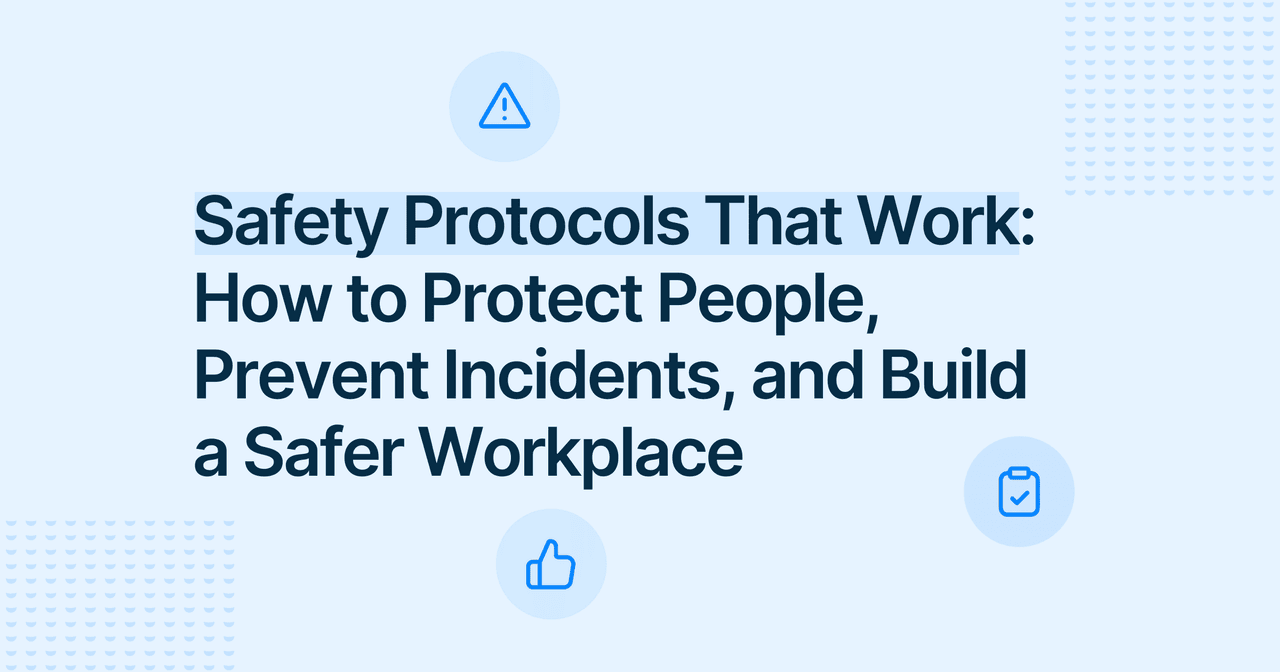



Modern Compliance Platform
Centralized whistleblowing and investigations in one secure platform.
Whistleblowing

Yeva Bartkiv
Copywriter
Published
2025-05-08
Reading time
7 min


Table of contents
Subscribe to our newsletter
Let’s be honest - you didn’t get where you are by thinking small. You're already successful. But here’s the question that separates the truly legendary from the merely competent: Can you build something that endures? Ethical leadership isn’t about being the nicest person in the room - it’s about wielding your influence in a way that commands loyalty, attracts top talent, and shields your empire from reputational catastrophe. In short - ethical leadership is a power move.

In today’s dynamic business landscape - where a single social post can spiral into a public relations disaster and employees are increasingly vocal - fostering a culture where people feel safe to speak up isn’t idealistic - it’s essential. Ignore it at your peril. Ethical leaders know that a speak-up culture at work is both a risk-mitigation strategy and a catalyst for innovation, sustainability, and long-term success.
Establishing an ethical culture in the workplace means more than setting rules - it means actively nurturing a space where values like integrity, transparency, and fairness aren’t just discussed - but practiced. It’s about giving every employee - from intern to VP - a voice, and ensuring that voice is protected and valued.
Ethical leadership is not a branding campaign - it’s a high-stakes strategy rooted in power, trust, and influence. It refers to the process of leading with integrity, transparency, fairness, and accountability - especially when it's hard. Ethical leaders don’t just preach values - they practice them in their decision-making and everyday interactions.
Ethical leadership in business means:
Still think this is all fluff? Think again. Ethical leadership is a proven strategy for business success.
A strong ethical culture in the workplace and a vibrant speak-up culture at work deliver:

Ethical conduct enhances the bottom line. Unethical behavior, in contrast, is expensive. Think Wells Fargo, Volkswagen, or Theranos. Ethical failures cost billions, tank stock prices, and damage brands for years. Business leaders who prioritize ethical behavior avoid these pitfalls - and instead build sustainable value.
Even with ethics hotlines and compliance initiatives - many team members remain silent. Why?

You can’t delegate culture - you are the culture. Here’s how business leaders can embed ethical practices and lead the way.
Team members take their cues from the top. If you want ethical conduct - model it relentlessly. Show courage in ethical decision-making - even when there’s pressure to compromise.
Example - Microsoft CEO Satya Nadella promotes a culture of empathy and humility. His openness in acknowledging failures has built deep trust and led to increased innovation and well-being across the company.
Ethical values don’t belong in a drawer. Make them part of your daily decision-making process. Connect ethical principles to business performance metrics. Make integrity non-negotiable.
Pro move - Tie bonuses and performance reviews to demonstrated ethical behavior. Money motivates.
Leaders must reduce power distance. Host town halls, hold skip-level meetings, and implement anonymous and transparent reporting mechanisms. Ethical leaders make themselves approachable and accessible.
Balance it - Anonymous hotlines for safety, public forums for empowerment. Use both to cultivate a culture of trust.
Middle managers are the nerve center of company culture. Train them to spot ethical issues and navigate them with integrity. Invest in leadership development focused on ethics in leadership.
Tactic - Use real-world case studies to prepare them for ethical challenges in leadership.
When someone speaks up - recognize them. Highlight examples of ethical leadership in action - especially when someone raises a concern that’s inconvenient or uncomfortable.
Example - At Intel, team members who surface safety risks are publicly (and safely) celebrated. That sets the tone for a positive work environment.
Closing the loop is critical. A feedback vacuum undermines trust. Ethical leaders follow through, communicate outcomes, and demonstrate accountability.
Rule - If you ask for input, show what you did with it. Transparency fosters loyalty and accountability.
What you measure, you manage. Use tools like cultural health surveys, ethics indexes, and stakeholder feedback to evaluate whether your ethical leadership initiatives are working.
Key question - Do employees believe leadership embodies our stated ethical values?
Ethical dilemmas don’t come with guidebooks. When values conflict - ethical leaders must make decisions that reflect the company’s soul.
Ask:
Nothing undermines ethical leadership faster than hypocrisy. Speak-up cultures implode when:
In 2015, Dan Price, CEO of Gravity Payments, made waves by slashing his own salary from $1.1 million to $70,000 and setting a company-wide minimum wage of $70,000. The move drew both praise and criticism - some warned it would hurt profits or demotivate higher earners.
But the results speak for themselves. Six years later, Gravity Payments had doubled its workforce and grown revenue by 300%. Price’s bold commitment to fair pay didn’t just silence critics - it proved that ethical leadership and business success can go hand in hand.
Ethical leadership and culture are inseparable. A healthy workplace culture rooted in ethics contributes to:
In an age of increasing accountability, transparency, and social media scrutiny - ethical leadership is more than a trend - it’s the blueprint for survival. The importance of ethical leadership in business can’t be overstated. Ethical business is sustainable business.
Customers, investors, and stakeholders now demand more than performance - they demand principles. Leaders who demonstrate ethical leadership skills position themselves for enduring impact.
Reputation is the new currency. Trust is the new capital. Ethical leaders understand that real influence comes not just from authority - but from respect.
So ask yourself:
Because in today’s business environment - being ethical isn’t just about doing the right thing - it’s about winning the long game.




Centralized whistleblowing and investigations in one secure platform.
Keep Reading

Alaa El-Shaarawi2026-02-108 min
Legal & Compliance

Alaa El-Shaarawi2026-02-098 min
Workplace Environment

Marie Roland2026-02-033 min
Workplace Environment

Alaa El-Shaarawi2026-02-029 min
Workplace Environment